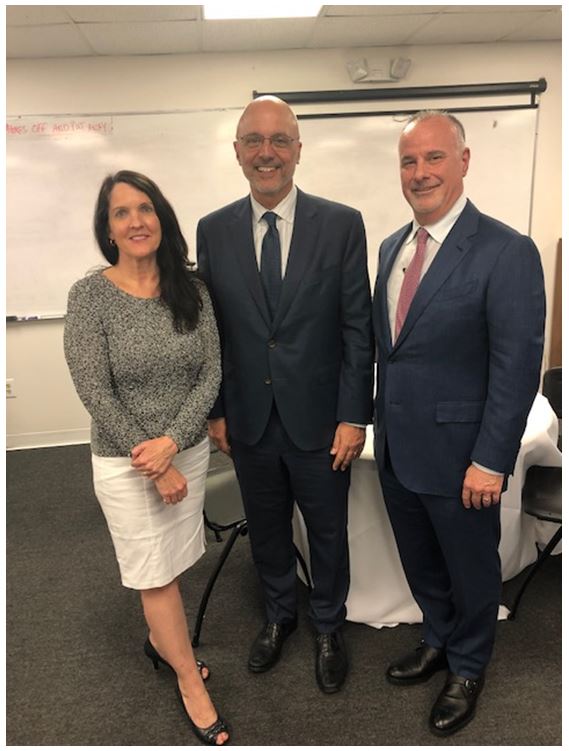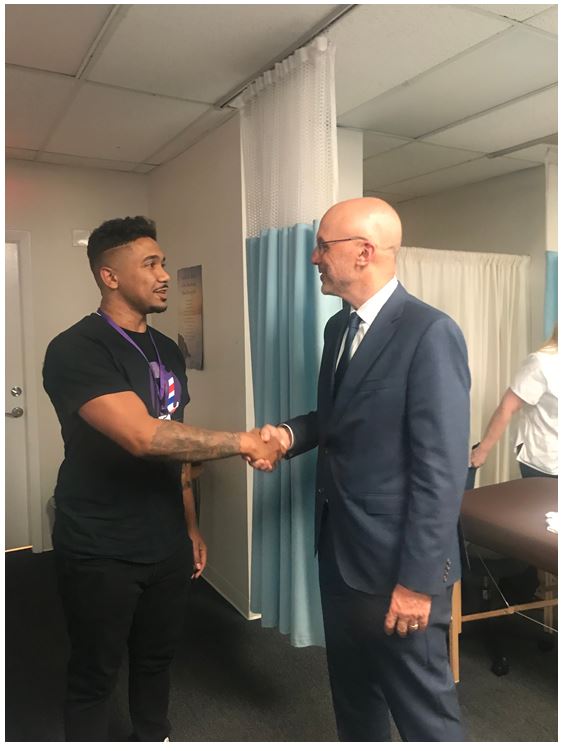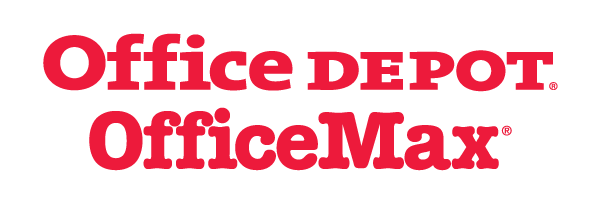

AACS is pleased to announce the addition of three new speakers to the lineup for the AACS 2020 Government Relations Summit & Hill Day. All three have key insights, as they all work or have led the U.S. House of Representatives Committee on Education and Labor:
- Alex Ricci, U.S. House of Representatives Committee on Education and Labor, senior staff
- John Kline, former U.S. Representative (R-MN) and Former Chair of the House Education And Workforce CommitteE
- Katherine Valle, U.S. House of Representatives Committee on Education and Labor, senior education policy staff
The Honorable John Kline will serve as our luncheon speaker. Katherine Valle and Alex Ricci will participate in a congressional experts panel discussion. Both events take place on March 25 to prepare for Hill Day the next day.
2020 AACS Summit & Hill Day
Register now and join your fellow school owners, faculty, students and employers March 24-26, 2020 to advocate on Capitol Hill for the beauty industry. Learning how to share succinct, effective messages with your lawmakers and how to effectively use social media for advocacy, are among the skills you’ll learn during this event.
Deadline to reserve your room at the Washington Hilton has been extended to March 5. Book your room
2020 Government Relations Summit & Hill Day
March 24-26, 2020
Washington Hilton
Click here for more information

We are stronger together! The time is NOW to schedule meetings with your Members of Congress during the 2020 Government Relations Summit & Hill Day. We’ve created a handy tip sheet, letter templates, and made it easy for you to identify and get some time on your lawmakers’ calendars to advocate on behalf of your school and the industry.
Click here
Webinar #2: Final Countdown to Capitol Hill
To help you prepare for your time in Washington, D.C. we have one final webinar.
When: March 12, 2020 02:00 PM Eastern Time (US and Canada)
To register: click here
(If you missed Webinar #1: Getting Prepared for your D.C. Appointments, email info@beautyschools.org for a copy of the recording.)

On Monday, February 24, 2020, the AACS Political Action Committee and Neal Heller, Government Relations Committee Chairman, hosted an exciting campus visit and fundraising event for Rep. Ted Deutch (D-FL) who serves on the House Judiciary, House Ethics and House Foreign Affairs Committee.
The event was held at Cortiva Institute in Pompano Beach, Florida. Mr. Deutch met with students, faculty, vendors and other school owners and had engaging discussions about higher education issues in our country.
Everyone said that it was a very informative and positive event. We are pleased that Mr. Deutch gained valuable knowledge about the school's programs, outcomes, students and graduates, and the essential education that our sector provides. He also gave us valuable insight about how AACS members can engage with Members of Congress on both sides of the aisle by emphasizing the value schools bring to the local area.

A highlight of his visit was his interaction with Steve Marquez (pictured), an Army veteran of 8 years and barber student at the Hollywood, Florida campus. These types of interactions are key to our messaging and increased awareness about what makes AACS schools stand out.
Michael Halmon, President of AACS and Katherine Brodie, the lead federal Public Policy Advocate for AACS also attended from Washington, D.C., in addition to Board member Garrett Shuler. We were also honored to have two other school owners with us at the event: Mez Varol and Robert Rosenberg. As always, we urge all member institutions to request a campus visit and/or host a fundraising event with their member of congress in 2020, and we are standing by with a team of professionals to assist you with all the details! Contact Kathy Chow at info@beautyschools.org for more information.
Deadline extended! Share your expertise at AACS 2020 conferences

Image by Michal Jarmoluk
Applications are now being accepted for volunteers and speakers for 2020 AACS conferences. Volunteers for the CEA & AMP Convention and the AACS Annual Convention are key to the events' success. Join us as a volunteer event committee member.
The AACS 2020 theme is: "It's Time To Engage: Advocate. Ignite. Rise." We want compelling programming that will leave attendees wanting more. We want your ideas for topics and credentials as a speaker to share your knowledge and expertise.
Submit your application to volunteer here.
Submit your application for speaker here.
Even if you can’t join us on Capitol Hill, you can still join the #IncludeBeauty campaign to protect our schools, students and employees from the College Affordability Act, a House bill approved in Committee by the Democrat leadership of the House Education and Labor Committee. The bill is the most comprehensive legislative attack we have seen on the cosmetology sector due to multiple damaging provisions directed at for-profit colleges.
Communicate directly with Members of Congress to oppose the House College Affordability Act, and ask your employees and students to do so too. Letter templates and instructions are available here.

Image by Thomas Ulrich
In today’s highly fast paced environment that is fueled by social media, we can come together, join forces, and retweet, repost and share so much information. Think about the resounding messages we can put out in the universe of social media if we all collectively dedicated ourselves to sharing content on our social media channels.
Recently, the AACS Board of Directors hired Baran Strategy & Communications to oversee our public relations strategy, which includes contributing to our social media channels.
Here’s how you can amplify our collective voices:
- Like and follow our Facebook and Twitter accounts.
- Share and comment on our posts. You’ll receive emails with the subject line, “Repost for social media” in case you’ve missed our posts.
- Share your news and events and tag AACS so we can engage with your social media too.
We know if we come together and raise our presence on social media, we can be unstoppable! We are so much stronger together.
This course will explore the online learning landscape and how to ensure learner engagement remains high, even when working virtually. The course discusses various aspects of online education, as well as discussing techniques for both social and motivational forms of engagement and how to apply them appropriately in courses.
Access course now

For members only, this card can be given to your staff, faculty and students and is accepted at more than 68,000 pharmacies nationwide. Save up to 80% on prescriptions. No health restrictions, and may be used on drugs not covered in health plans. May even be used on many pet prescriptions. The card is pre-activated and ready for use! For your copy, contact Cristina@beautyschools.org.

We have partnered with OfficeMax to provide AACS members a special benefit. Businesses using the Office Depot discount program see significant savings. Take advantage of the program today and you could save thousands of dollars per year! To learn more, click here.
Federal Updates
U.S. Department of Education
February 19, 2020 – Federal Student Aid released a series of updates to the quarterly application, disbursement, and portfolio reports on its FSA Data Center to include data through December 31, 2019. As part of this release, Federal Student Aid also published its first report regarding Automatic Closed School Discharge. Federal Student Aid proactively posts these reports in support of open government initiatives to help ensure consistency, increase transparency, and establish self-service opportunities for stakeholders.
U.S. Secretary of Education Betsy DeVos announced today the creation of a new initiative that allows more students to gain on-the-job experience with employers in their field of study as part of their Federal Work-Study (FWS) program. The initiative, known as an experimental site, expands FWS opportunities for students at 190 institutions. Institutions participating in the experimental site will be granted waivers, which encourage them to expand the use of FWS funds to support more students working in the private sector and, for the first time, allow them to pay low-income students for work experiences required by their academic programs, such as student teaching and clinical rotations.
February 21, 2020 – Closeout of all 2018–19 Campus-Based program awards has been completed based on the data submitted on the Fiscal Operations Report for 2018–19 and Application to Participate for 2020–21 (FISAP). The closeout amount will appear in G5 as the authorized amount for the 2018–19 Award Year. If a school drew down more than what was reported as expended in its 2018–19 Fiscal Operations Report, a negative amount will appear in the "available balance" line in G5 and on reports generated from G5.
The Department published a notice in the Federal Register proposing an extension of the Measuring Educational Gain in the National Reporting System for Adult Education information collection system. Title 34 of the Code of Federal Regulations part 462 establishes procedures the Secretary uses to consider literacy tests for use in the National Reporting System (NRS) for adult education. This information is used by the Secretary to determine the suitability of published literacy tests to measure and report educational gain under the NRS.
February 24, 2020 – On February 24, 2020, the Department distributed the FY 2017 draft cohort default rate (CDR) notification packages to all eligible domestic and foreign schools only. For both eligible domestic and foreign schools enrolled in the Electronic Cohort Default Rate (eCDR) notification process, the Department sent FY 2017 draft cohort default rate and accompanying documentation via the Student Aid Internet Gateway (SAIG). This information was sent to the SAIG mailbox for the destination point administrator designated by the school. The time period for appealing the FY 2017 draft cohort default rates under 34 C.F.R Part 668, Subpart N begins on Tuesday, March 3, 2020 for all schools.
The Department published a notice in the Federal Register proposing a revision of the Fiscal Operations Report for 2019-2020 and Application to Participate 2021-2022 (FISAP) and Reallocation Form. The data submitted electronically in the FISAP is used by the Department to determine the institution's funding need for the award year and monitor program effectiveness and accountability of fund expenditures. The changes to the version of the FISAP are to update the deadline and award year references, incorporate new data fields added to capture cumulative service cancellation reimbursement activity beginning in the 2019-20 award year under the Perkins Loan Program.
The Department announced today transformative upgrades to StudentAid.gov. The updated website now features new tools, which provide students with detailed information about the grants and loans they have received and guide them to a personalized recommendation for a loan repayment plan. Federal Student Aid (FSA) also launched a pilot that allows a subset of the office's 42 million borrowers, for the first time ever, to make student loan payments directly on StudentAid.gov. These updates complement the President's fiscal year 2021 budget proposal, which includes calls to simplify student loan types, amounts, and repayment options and provide customers with access to an online portal with personalized information to help them easily understand their options and make informed decisions throughout the financial aid life cycle.
U.S. Congress – Newly Introduced Legislation of Note
No recent legislation.
State Updates
State Legislators Debate Barbering and Cosmetology Hours
he final week of February finds 38 state legislatures actively meeting. Key deadlines this week include: “crossover” deadlines in Colorado, Iowa, Kansas, South Dakota and West Virginia by which a bill needs to be passed by its chamber of origin to remain viable, and a Monday bill introduction deadline in Mississippi. During this critical period, AACS will keep you apprised of the latest state legislative developments of interest to member schools.
In Virginia, the House Professions/Occupations and Administrative Process Subcommittee voted 5 to 2 on Tuesday to recommend reporting a substitute to SB 915. The amended bill, which was not available online at press time, directs the Department of Professional and Occupational Regulation and the Board for Barber and Cosmetology to review licensure requirements. As passed by the Senate, SB 915 would have prohibited the Commonwealth’s Board for Barbers and Cosmetology from requiring more than 1,200 hours of instruction “in the field for which an applicant for a license to practice.”
Ohio’s House State and Local Government Committee conducted a third hearing on HB 399 last week. As previously reported, the bill would reduce the course of instruction for cosmetology in the Buckeye State from 1,500 to 1,000 hours. It also proposes other notable changes to the state’s cosmetology and barbering act, including:
- Reducing the course of instruction for hair design from 1,200 to 800 hours;
- Providing for early testing;
- Permitting school administration of the practical licensure exam;
- Increasing school surety bonds from $10,000 to an amount “equal to ten per cent of the school's gross income from tuition, fees, and other required institutional charges during the preceding calendar year, provided that the required amount of the bond shall be not less than ten thousand dollars and not more than two hundred fifty thousand dollars;”
- Allowing cosmetology and barber schools to offer distance education in accordance with Board rules, and;
- Establishing apprenticeship programs. These programs must pay at least a minimum wage and cannot be longer than 150% of the course of instruction at a school.
The Ohio Association of Cosmetology Schools, the Ohio Barber and Beauty Alliance, and National Association of Barber Boards of America were among the organization submitting testimony in opposition to the bill. Proponents of HB 399 testified on January 29, 2020. Testimony from that hearing can be viewed here.
In Arizona, the House Government Committee amended and favorably reported HB 2740 last week by a vote of 9 to 0. The House Rules Committee unanimously ruled on Tuesday that the bill was constitutional and in proper form. As previously reported, the amended bill proposes to merge the state’s barbering and cosmetology boards – but leaves massage therapy with the Arizona State Board of Massage Therapy. It would also: reduce the course of instruction for barbering from 1,500 to 1,000 hours; allow for pre-graduation testing; provide for out-of-state licensed professionals to provide services for up to two weeks to “persons who are attending an athletic, charitable, artistic or social event” in Arizona, and; correct a statutory oversight by allowing hairstylists to remove superfluous hair from the neck. Of interest to schools, the bill would: allow schools to offer both barbering and cosmetology programs if they have appropriately licensed instructors for each; allow students to provide off-campus services at a school sponsored event, and; permit schools to offer “similar” programs – for example, massage therapy – not regulated by the state’s cosmetology board. Finally, the measure contains provisions allowing a “laser safety officer” – defined by rule – to directly supervise an aesthetician or cosmetologist certified as a laser technician.
Arizona HB 2740 will soon be considered on the House floor with a “do pass” recommendation from both the Majority and Minority caucuses.
Florida’s House Commerce Committee amended and unanimously reported HB 1193 last week. The Committee Substitute heading to the House floor would reduce the course of instruction for barbering from 1,200 to 900 hours. It also favorably modified the hour reductions for specialist licensure – including providing for 400 hours “or the number of hours of training required to maintain minimum Pell Grant requirements” for full specialists (combining both skin and nails). Under current law, a 500-hour course of instruction is required for full specialist licensure.
The Florida occupational licensure reform bill would also: allow for early licensure testing of barbers at 600 hours; provide for 1-to-1 licensure reciprocity of barbers and cosmetologists; deregulate hair braiding, hair wrapping, body wrapping, the application of polish to fingernails and toenails, and makeup application, and; reduce the biennial CEU requirement for licensure renewal from 16 to 10 hours.
Florida SB 474, which currently contains barbering and cosmetology provisions similar to HB 1193, is headed to the Senate floor after the Appropriations Committee voted 20 to 1 last week to report a Committee Substitute.
Iowa’s Senate State Government Committee voted unanimously last week to file SF 2365 as an approved committee bill. As reported last week, the measure – initially filed as SSB 3156 – would merge the state’s cosmetology and barbering boards and reduce the course of instruction for cosmetology from 2,100 to 1,800 hours. The bill also: removes "arranging, braiding, and dressing of hair" from the definition of cosmetology; replaces the state’s current 2,100 hour barbering license with a 1,500 hour barbering/hairstylist license, and; prohibits the newly combined Board from requiring instructors to have additional hours of training – beyond those required for a cosmetology license.
In Oklahoma, the Senate Business, Commerce and Tourism Committee voted 7 to 1 last week to favorably report SB 1166, which would eliminate licensure for cosmeticians, hairbraiders and demonstrators. Oklahoma cosmeticians are currently required to obtain a 600-hour license to perform shampooing, hair arranging and the application of makeup, including, but not limited to, using hairstyling tools and products. Hairbraiders are not required to complete a specified course of instruction at a school but must pass a safety and sanitation test to perform hairbraiding, hairweaving techniques, and the application of hair extensions in a licensed cosmetology establishment.
Maryland’s Senate voted 44 to 0 last week to pass a bill requiring for-profit colleges and trade schools, including cosmetology schools, to derive at least 10% of their revenue “from a source other than federal funds or institutional debt.” If enacted, SB 294 would prohibit schools – beginning in FY 2023 – from enrolling new Maryland residents if they fail the state’s 90/10 rule for two consecutive years or two of their three preceding fiscal years.
On a more positive note, the Maryland House Appropriations Committee voted unanimously last week to withdraw HB 470. As previously reported, this measure would have required each for-profit college or private career school to spend at least 50 percent of its tuition-revenue on “instructional spending” as defined by the federal Integrated Postsecondary Education Data System.
A Kentucky bill was introduced last week to replace the state’s definition of “blow dry services” with a definition of "shampoo and style services" that “means beautifying, cleaning, or arranging the hair of an individual for consideration only at a limited beauty salon.” A license to provide shampoo and style services will require 300-hours of instruction – which is a 150-hour decrease from the current 450-hour blow drying license. The measure would also allow Kentucky-licensed cosmetologists, estheticians, stylists, or nail technicians to obtain a temporary “event services permit” to perform services outside of a Board licensed salon/establishment. Finally, the measure strikes current law requiring instruction at a cosmetology, esthetics or nail school “to be given within an uninterrupted period with not more than eight (8) hours nor less than four (4) hours of instruction a day, exclusive of Sundays.”
Illinois Representative Representative Allen Skillicorn (R) recently introduced a bill that would allow individuals to practice barbering, cosmetology, esthetics, hair braiding, or nail technology without a license if they inform prospective clients. HB 5558 is currently in the House Rule Committee for assignment to a committee of jurisdiction. Republicans control only 44 of the House chamber’s 118 seats.
In Utah, State Representative Marc Roberts (R) introduced a bill Tuesday to deregulate blow drying and hair styling services. HB 410 specifically states that an individual who “dries, styles, arranges, dresses, curls, hot irons, shampoos, or conditions hair” would be exempt from licensure if he/she displays a sign to inform the public that they are not licensed. The bill is currently in the House Rules Committee awaiting assignment to a standing committee.
Finally, Oregon’s House Rules Committee voted 6 to 1 last week to report HB 4016 with amendments. The bill defines "device" – including light-emitting diode therapy and microdermabrasion – for the practice of advanced nonablative esthetics and prohibit non-advanced estheticians from using mechanical or electrical apparatus, appliance or device unless authorized by Health Licensing Office by rule. The bill is currently in the House Ways and Means Committee.
The text of the bills listed in this report can be found in AACS’ Bill Tracking Portal.
Please do not hesitate to contact Brian Newman at bnewman@abingdonstrategies.com or by phone at 202-491-5254 with comments or questions.
Additional Bills Introductions
Colorado HB 1326
The bill would establish an “occupational credential portability program” that would apply to most licensed professions. It presumes will some limited exceptions that “a person duly licensed, certified, registered, or enrolled in good standing in another state or United States territory to practice a particular profession or occupation” is entitle to a Colorado license upon certifying they have “equivalent experience or credentials” and have not been disciplined.
Georgia SB 379
The bill makes mostly technical changes to the state’s barbering and cosmetology Act. For schools, it would allow “master cosmetologist instructors” and “master barber instructors” to crossover after completing a 300-hour course at a barbering or cosmetology school.
State Bill Enactments
South Dakota SB 10 – Effective July 1, 2020
The bill would require the state’s Cosmetology Commission to “allow credit for general coursework in areas not specific to the practice of cosmetology, nail technology, or esthetics, that is completed in other programs or institutions, to be applied to any course of study required for licensure.”
South Dakota SB 23 – Effective July 1, 2020
The bill would repeal the high school graduation or equivalent requirement for professions under the state’s Cosmetology Commission.
You’re excited…they said YES! But, will they return for their Financial aid/finance appointment? Testing Appointment? Will they start? Every potential student has a worry or concern... maybe many. Are they truly prepared? It is our job in admissions to “hold their hand” while “holding them accountable.” Remember that value must exceed cost for a student to start and stay!
Learn:
- When to schedule return appointments
- When to call
- What ‘take-away’ pieces work
- Our ‘points of difference’
- Proper follow up techniques
- What orientation should be about
Time: Mar 19, 2020 4 p.m.ET/1 p.m.PT
Register here
|

















